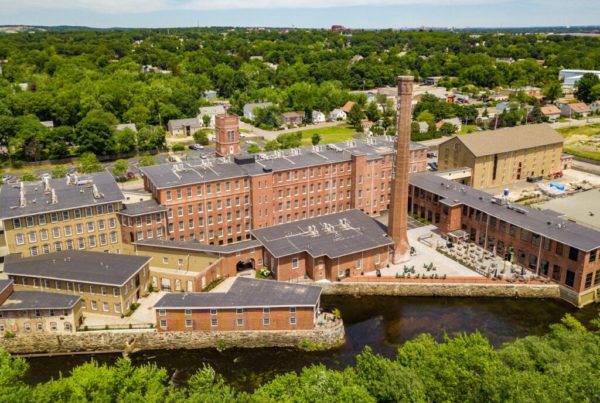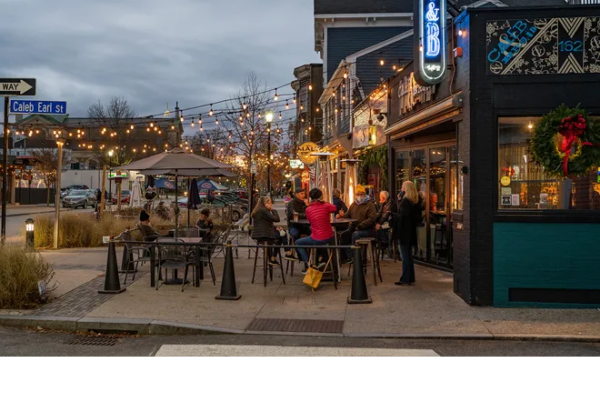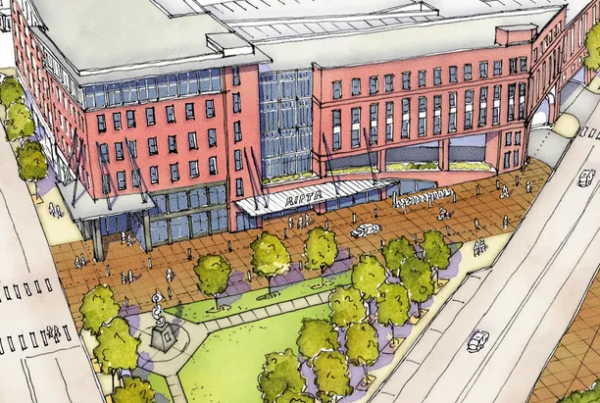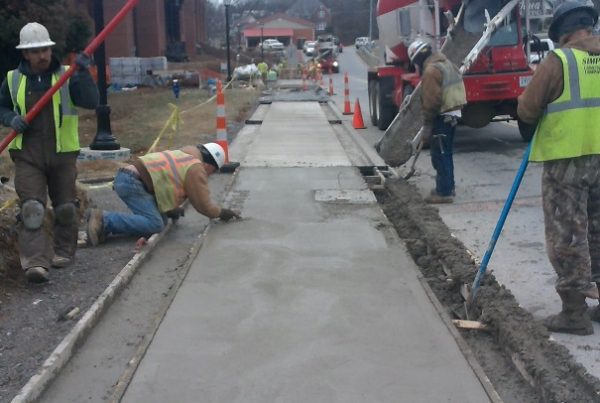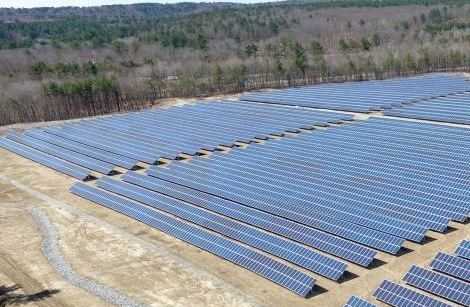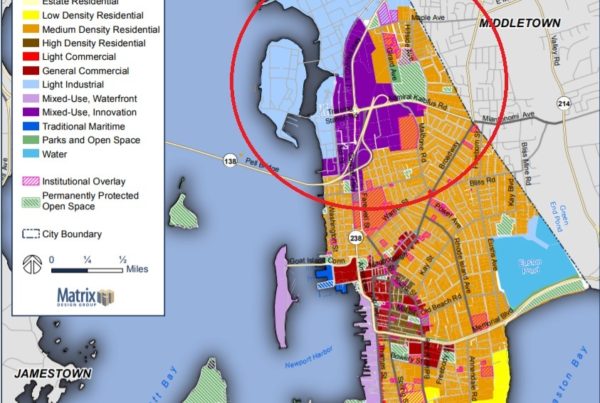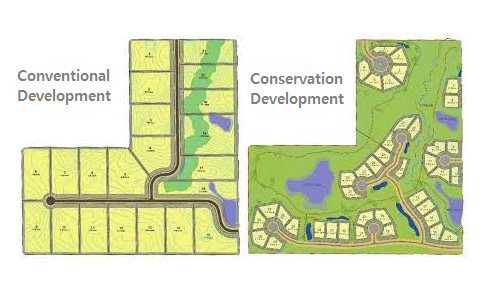Key gains in 2022 General Assembly for Historic Tax Credit, Housing, Main Street Improvement, Municipal Infrastructure; Administrative progress on Forest Conservation; Local Zoning reforms for Community Benefits in Newport, Conservation Development in Charlestown
Smart Solar Siting, Transportation Reforms, Increased Transit Funding await further action in 2023
Grow Smart RI’s policy advocacy is grounded in the 3 E’s of Economy, Environment, and Equity.
During the 2022 General Assembly, Grow Smart RI and our allies made additional major progress in advancing our shared prosperity and quality of life agenda for all Rhode Islanders, no matter your zip code. With our advocacy and support, State Government took significant steps to boost Downtown and Main Street revitalization, affordable housing production, and a more user-friendly public transit system.
The big economic, environmental, and quality of life challenges remain. There is still, for example, a severe shortage of affordable and workforce housing opportunities for Rhode Islanders; too many vacant and underutilized buildings in our Downtowns and Main Streets; continued underfunding of our transit system and bike and ped infrastructure; and continued threats to our core forests.
State Historic Tax Credit
Through legislation, the Tax Credit program was extended once again for another year. The State Budget also allocated an additional $28M for the program. Together with a $20M allocation in the previous year’s budget, the State Historic Tax Credit has received a total of $48M during the last year following a funding drought of 8 years. Since the program’s inception in 2001, it has incentivized more than $2 billion of private investment rehabilitation and repurposing more than 300 structures in urban, suburban, rural communities across RI.
Accelerating Housing Production
It was a banner year for legislation to help address Rhode Island’s housing crisis. A suite of 10 bills was passed by the General Assembly and signed by the Governor. The legislation was backed by House Speaker K. Joseph Shekarchi and Rep. June S. Speakman, Chair of the Special Legislative Commission to Study the Rhode Island Low and Moderate Income Housing Act. In addition, a historic investment of $250M in affordable homes was approved, providing critical resources for housing development.
Main Street Improvement Fund
First enacted into law in 2015, the Rode Island Main Street Streetscape Improvement Fund received $1M allocations annually in the State Budget between 2016 and 2018 to be used for matching grands and loans to facilitate improvement of streetscapes (enhanced sidewalks, wayfinding signage, upgraded building facades, etc.) in support of creating an attractive environment for small business development and commerce. Despite the program’s popularity and success, it remained dormant since 2018. The FY 23 State Budget allocated $5M for the program, and we look forward to a solicitation of new applications.
Public Transit
The big transportation win of 2022 was Governor McKee scrapping RIDOT’s flawed “Multi-Hub” proposal to replace RIPTA’s statewide bus terminal at Kennedy Plaza – which we and many others believe would have been a disservice to all who use transit. Instead, the Governor put his support behind the Dorrance Street Transit Center, a recommended concept for a full-service, indoor transit facility in downtown Providence. The project is now proceeding as a multi-story, mixed-use facility and an RFP is expected to be issued by year’s end or early in the new year.
Broader Transportation Reform
Rhode Island’s outdated and overly auto-dependent transportation system has been failing to keep pace with the needs of its residents, its economy and the planet. This topic got the attention of the candidates for Governor in this letter sent to them by 36 local organizations, including Grow Smart RI. It then became a major point of discussion in this gubernatorial debate on August 2nd. Expect to hear more about his topic in the new year.
Municipal Infrastructure
A state-funded Municipal Infrastructure Grant Program that Grow Smart RI helped establish in 2018 is now beginning to yield smart growth dividends. Modeled after a successful program in Massachusetts, the purpose of the grant program is to support projects that unlock needed housing production and other economic development opportunities in smart growth locations. An initial pilot allocation of $1M from the FY22 State Budget was recently awarded to projects in four municipalities. With an additional @2.5M allocated to the program a new request for proposals was announced recently with a December 2nd, 2022 application deadline.
Solar Siting Reform
The latest legislative proposal (H-7531) to reform solar siting in Rhode Island failed to win passage in the 2022 General Assembly. The bill would have rendered RI’s core forests or unfragmented forests greater than 250 acres or more ineligible for RI renewable energy siting incentives. The core forests represent approximately 20% of RI’s land area and are considered to be the most important forests to conserve. The bill also defined preferred sites for solar development to include landfills, rooftops, brownfields, and parking lots that can support solar carports. We’re working once again with our allies to adjust the proposal for reconsideration in the 2023 General Assembly.
Forest Conservation
The State Forest Conservation Commission, chaired by Grow Smart RI’s Scott Millar, completed a definition for old growth forests and forests with old growth characteristics. This definition will now be used to help define RI’s most important forests as required by the RI Forest Conservation Act. There will be public input before this definition is adopted. The definition of RI’s most important forests can be used to assist municipalities to make more informed land use decisions to conserve important forests via their open space preservation efforts. The definition will now also be used in a revised solar siting reform bill to make these forests ineligible for incentives that are encouraging forest loss from solar development.
Local Zoning Reform in Newport
In a turn that many didn’t foresee, Newport has become the first municipality in Rhode Island to ensure that development benefits residents in a variety of ways. On April 27th, 2022, the Newport City Council unanimously approved zoning amendments that define Community Benefit Agreements related to the North End Urban plan (read more). The proposed amendments had been favorably recommended in March by the Planning Board. The effort was made possible through a consulting arrangement with Smart Growth America that Grow Smart RI helped to facilitate.
Conservation Development Design
The Charlestown, RI Town Council voted in 2022 to adopt the Conservation Development ordinance that Scott Millar prepared for the Charlestown Planning Commission at a public hearing held in August. Conservation development is a controlled-growth land use development that adopts the principle for allowing limited sustainable development while protecting the area’s natural environmental features in perpetuity, including preserving open space landscape and vista, protecting farmland or natural habitats for wildlife, and maintaining the character of rural communities. It also also improves property values while decreasing building costs and protecting water resources. Scott assisted the Planning Commission with amendments to their land development and subdivision regulations to implement Conservation Development as an important tool for. The amendments were adopted and are now being implemented and serving an an example for other communities.

